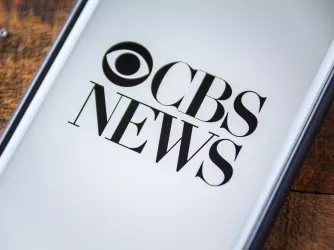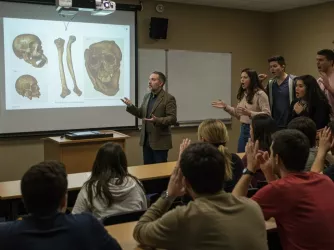Table of Contents
FIRE calls for reinstatement of U. North Alabama newspaper adviser position

When a college or university receives two letters from FIRE in two weeks, it usually means one of two things is true: Either the school saw the error of its ways quickly and is getting praise, or it has engaged in such a compound series of indefensible actions that investigating one brings to light others.
The University of North Alabama is getting a second letter, and not because it’s suddenly seen the light.
New developments in the ongoing conflict between the University of North Alabama and its student newspaper, The Flor-Ala, have led to FIRE writing the university for the second time in as many weeks. This time, we’re calling on the school to rescind prospective changes to the role of newspaper adviser that would effectively fire the current adviser, Scott Morris.
Last week, FIRE wrote to UNA to protest an unwritten media “protocol” that directed faculty and staff to ensure that statements to journalists had been “vetted” by administrators. Also last week, the College Media Association announced its membership had voted to censure UNA based on its decision to redefine the role of newspaper adviser in a way that would disqualify Morris. (UNA’s decision was made shortly after Morris met with an administrator upset by the Flor-Ala’s coverage.)
The change in the role would be to eliminate the non-tenure track position Morris occupies and replace it with a faculty position requiring a Ph.D, which Morris doesn’t have. What Morris does have is 30 years of experience as an award-winning journalist and editor. Choosing someone with with real-world experience even if they lack a terminal degree is not uncommon in media disciplines, where experience such as being a Pulitzer prize winner, a bestselling author, or a war correspondent isn’t easily replaced by graduate studies.
That’s why it’s hard to swallow UNA’s defense of its change in the structure of the job — that it had nothing to do with its negative reaction to the coverage in The Flor-Ala and that, in fact, the change had been under consideration as far back as 2014. This argument was also undermined by a memo opposing Morris’ removal from the Southeast Journalism Conference, a group of 45 member schools (including UNA). That memo quoted Greg Pitts, head of the communications department at UNA between 2009 and 2015, as denying such a change was under consideration.
Additionally, in the course of its investigation, CMA obtained emails from UNA faculty showing that a 2015 conflict over Flor-Ala content led to Dean of Arts and Sciences Carmen Burkhalter suggesting that Pitts work on “Scott [Morris]’s job description so that we can tighten it up and expand it if needed.”
To the extent UNA’s defense of its current actions is that it has been thinking about changing the position for years, the email is evidence it’s been thinking about changing the position for years — because it’s wanted to censor the publication for years.
For civil rights violations in general, and First Amendment violations in particular, the question often concerns not whether the government has the power to make a decision, but rather why the government chose to exercise that power. The motivation behind a decision can separate a lawful exercise of government discretion from an unconstitutional abuse of authority. As government entities like UNA are made up of dozens of potential decision-makers who could impact any given decision, trying to determine the motivation of a complex system of actors is an imprecise and imperfect undertaking.
At the same time, there comes a point when the facts achieve a kind of “critical mass”; where the cause-and-effect relationships that the government claims to be coincidental become consistent enough to undermine that defense. In FIRE’s eyes, UNA has reached critical mass.
It might be a coincidence that, in 2015, its dean discussed changing the adviser role after she didn’t like the coverage in The Flor-Ala. It might be an innocent oversight that the direct supervisor of the adviser position in 2015 has no memory of any discussion to change that position. It might be a coincidence that, in 2018, the college did exactly what it considered doing in 2015, eliminating the existing position less than a week after coverage an administrator didn’t like. It might be unrelated that UNA employees were directed to send all media requests to public relations as this story unfolded.
But even if we accepted all of that as true, the best thing you could say about UNA’s decision is that it removed a highly qualified adviser and left the journalists at The Flor-Ala waiting for a future adviser who will, almost certainly, have less experience in publications. It is much more likely that UNA’s actions were indeed goal-oriented, and the goal was censorship.
UNA could fix this problem tomorrow by just reversing its decision, acknowledging the independence of The Flor-Ala, and permitting Morris to continue in his role. If this was an innocent mistake, it should be easy to fix. If, on the other hand, this was a sinister attempt to control the student media, UNA is likely to just keep digging itself a progressively deeper hole.
When and if that happens, FIRE will be watching.
Recent Articles
FIRE’s award-winning Newsdesk covers the free speech news you need to stay informed.

The FCC's show trial against CBS is a political power play

UPDATE: Another federal appeals court backs academic free speech for public employees

Feds to Columbia: ‘You want $400 million in contracts back? Do this (or else)’
